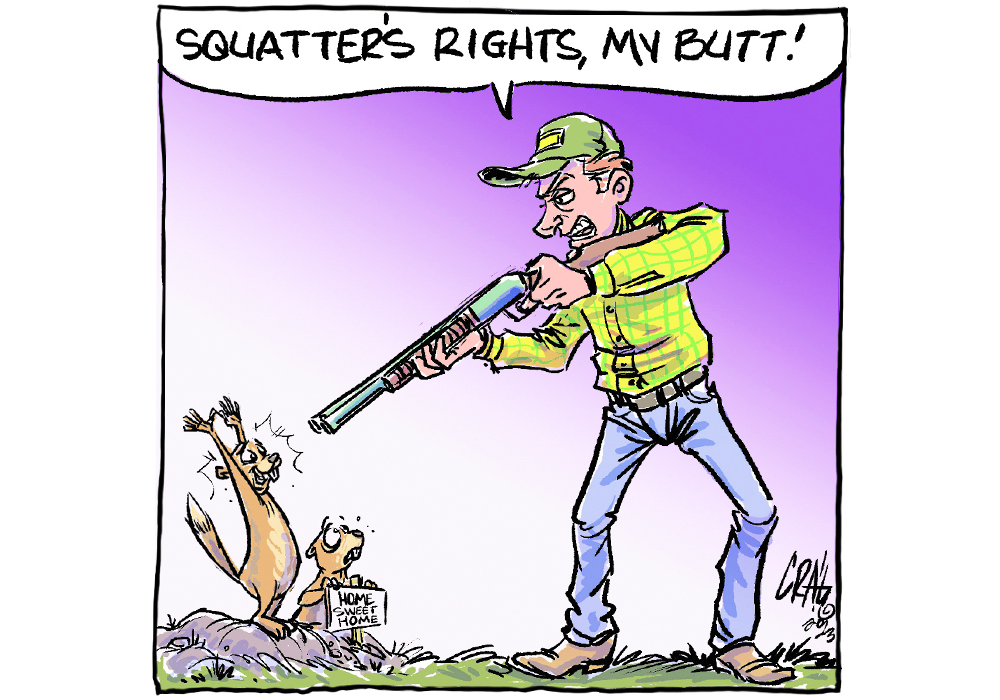For those who have been overstaying their welcome on someone else’s ground in Alberta, the right to stay and claim it for your own has ended. And it might have been about time that squatter’s rights came to an end.
In the past in that province, if you had hung around for more than a decade on private land and the registered owner hadn’t managed to shift you, you could apply to the courts to claim the land you were on as your own. If the court found good reasoning behind your being there, including making improvements, building a house or barn for instance, or clearing the land for farming, it might decide that you were now the rightful resident and transfer title to you.
Read Also

Kochia has become a significant problem for Prairie farmers
As you travel through southern Saskatchewan and Alberta, particularly in areas challenged by dry growing conditions, the magnitude of the kochia problem is easy to see.
While that might seem a little extreme to some landowners, depending on how long the situation had been going on, to others it appeared fair to allow people to remain and take up title. After world wars and the Great Depression there were times when land was, for all intents and purposes, left by its owners to its own fate. In some cases, an access road to isolated parcels owned by others became troublesome.
Absentee owners also have played a role. Other situations developed over small parcels that were cut off by roads, creeks or railways that made the land awkward to manage and allowed to remain fallow or untended. And some of these situations had carried on for a generation or more.
Claims could only be made against private landowners because public land, municipal land and irrigation districts were exempted.
Between 2010 and 2020 about 10 cases related to adverse possession came before the courts, but just how many were outstanding or were handled through arbitration processes isn’t well known.
The price of rural land has also increased, relative to other assets, making it more attractive to own or stake ownership over.
In response, governments in Canada have moved away from allowing the practice. Alberta carried on, despite encouragement from other levels of government, legal experts and politicians, as well as some titled landowners looking to affirm their stake.
In 2020 Alberta’s Law Reform Institute recommended that squatter’s rights be removed.
The Alberta government established a property rights review and public consultation process that, among other issues, looked at squatter’s rights. Last year it too recommended that these be eliminated.
The new amendment to Alberta’s property rights statutes became law in December. While it doesn’t automatically grant rights, it does affirm them and creates a clearer path for a title owner to claim the land back. Most importantly, it keeps the squatter from claiming adverse possession of the property.
This brings Alberta in line with New Brunswick, Ontario, Yukon, Manitoba, Saskatchewan and British Columbia.
For those squatters who had applied for and received titles in the past, they also get from the act’s recent amendments certainty that they will keep them. In addition, it gives courts guidance about deciding what to do about capital and other improvements that were made in good faith by squatters who believed they owned the land. And, the 10-year rule is gone, so landowners can claim their property at any time.
The move was overdue, but settles things for many owners and squatters.
Karen Briere, Bruce Dyck, Barb Glen and Mike Raine collaborate in the writing of Western Producer editorials.

















